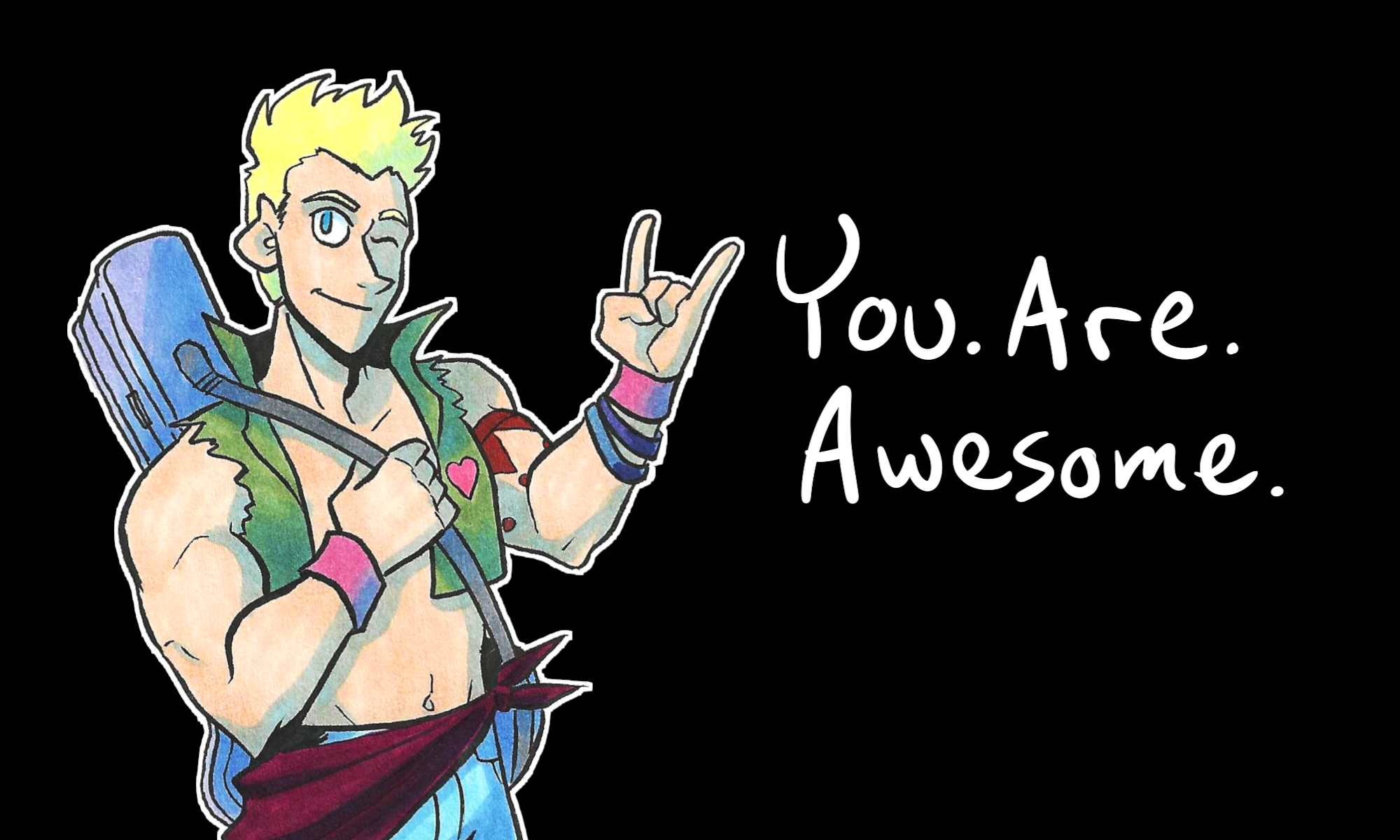I was reading “The Golden Theme” by Brian McDonald, as recommended by the likes of Chris Oatley and most students of OA Live, a class I’m taking. For a bit, I was really enjoying it and found a lot of useful truths out of it, which is it’s intended purpose. It’s a book that teaches you to be a better writer by recognizing very human things.
It was good… until I saw THIS passage. In it, Brian McDonald talks about “mirror neurons,” or neurons that are partially responsible in helping humans experience empathy:
“Some speculate that autism, a brain disorder that impairs social interaction and communication, may be the result of a broken mirror system.”
…I don’t like what this passage implies.
Brian, I liked you up until this point, and you do have some valid and useful things to say about stories and story-writing.
But I don’t like how this implies that autistic people are “broken” and can’t experience empathy.
Why?
Because as an autistic person, I can tell you: we DO experience empathy. We experience the full range of human emotions. Our emotions, and ourselves, are not broken.
The difference is we express these emotions in a way neurotypucal people label as “different” or “wrong.”
For example, I work at a craft store, and one of our regular customers has an autistic twelve-year-old boy. When he gets overstimulated or overwhelmed with sensations or emotions, he’ll just sit on the ground, often right in the middle of the aisle. That’s how he’s telling his family, “I need a minute.”
There was another boy a few years ago, when I worked as a caricature artist at Cedar Point, and he was also autistic. When he got overwhelmed with emotions he invented new words and stared into the distance.
Some autistic people can’t even talk at all. So they need another way to communicate. There’s stories of kids who are nonverbal absolutely excelling at text messages with family members.
Or maybe sometimes they talk, but they repeat themselves, like this kid who keeps repeating “the door is open!” but is unable to communicate (in neurotypical language) that he’s worried the baby’s going to accidentally get out of the house. He repeats himself until somebody is patient enough to talk in his language to understand what has him so worried.
This thing you’re describing, Brian, with the “lack of empathy,” sounds more like sociopathy. Autism is not sociopathy.
Autistic people can empathize. We just show it in ways you’re not used to.
Some kids jump. Some text. I make art.
Autistic people are full of stories and worlds of their own. They are talking in their own way.
You just have to be patient and actually listen to us.
Thank you for reading.
You. Are. Awesome.
P.S. Brian, it may not have been your intention to offend or misinform when you wrote that passage. Still, I hope you consider this point of view.
P.P.S. I also found this (surprisingly long) study about mirror neurons, and how a lot of scientists are thinking this mirror neuron system is not the problem with autistic brains. Please give it a read if you’re into that sort of thing.

Hello Kelci,
I apologize for choosing the wrong words to express my point. Sorry. My bad.
I will not hide behind my intentions because intentions have little to do with whether one is offensive or not.
Of course the problem with a book or video is that poor judgment is there forever.
I will say, that I do not think autistic people are broken people.
As a person with dyslexia I was often told that I was broken. I spent most of my time in school feeling like an idiot because the things became so easily to others were more difficult for me. It wasn’t until later that I realized I had gifts that made some things that were difficult for other people much easier for me. But I still carry the scars a little kid who is perceived as stupid. I know how those things can hurt. Please accept my apology.
Not as an excuse, but as a point of clarification, I will include a link to the television show, which first exposes me to the concept of mirror neurons. It is also where I got some of the language used in my book:
https://www.youtube.com/watch?v=Xmx1qPyo8Ks
I’ll try to be more sensitive in the future.
— Brian
Thank you very much for your kind words, Brian. We are all a work in progress and mistakes will be made. What matters is that we learn and keep moving forward.
Like I said in the post, I didn’t think your aim was to offend. But I do appreciate that you left a comment to clarify your intent.
Thank you for reading, and thank you again for your comments.
You. Are. Awesome.
Thank you for so graciously accepting my apology.
– Brian